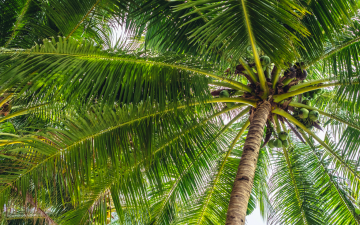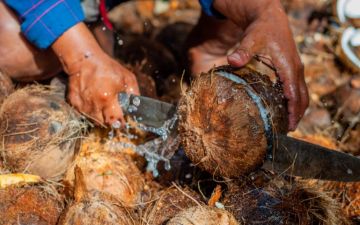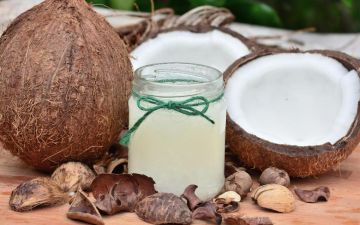Over the past decade, coconut products have boomed in popularity in the United States. Whether it’s coconut oil for cooking, coconut water as an alternative to sports drinks, or coconut milk as an alternative to dairy products, we’re consuming far more coconuts than ever before.
There is a potential problem. Coconuts grow in tropical regions, where investigations have documented how deforestation is already having a negative impact. The driver of this global problem is palm oil. Go back two decades ago, and palm oil was an unknown commodity, little used in Europe or the US. Fueled initially by demand for biofuels and as a cheap replacement for hydrogenated oils, palm oil is now the most consumed oil in the US, Europe, China, and India.
In fact, some of the growth in coconut demand is due to it replacing palm oil due to growing awareness of its adverse impacts. But much like the situation with palm oil in the past, we do not fully know the impact of coconuts on the environment. My investigation will connect the growth in coconut-products with the situation on the ground in the two countries responsible for most global coconut trade – Indonesia and the Philippines.




